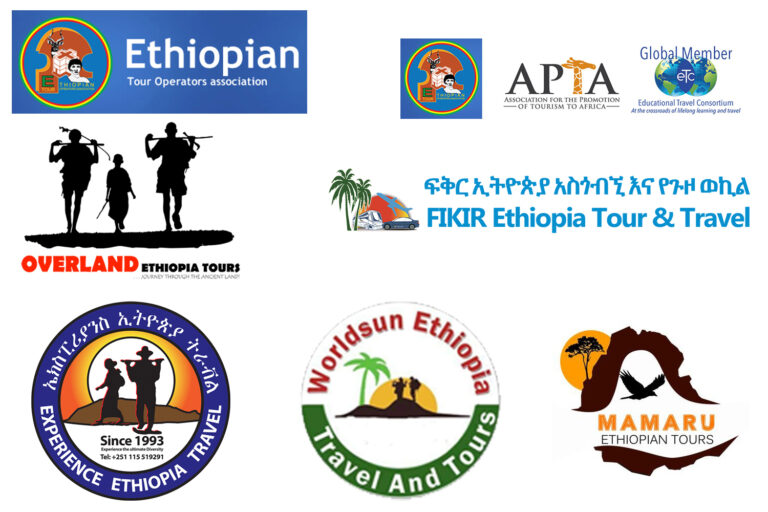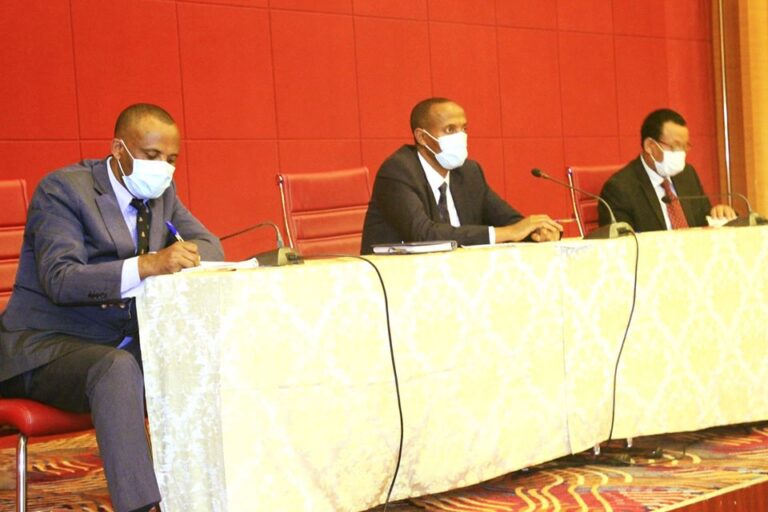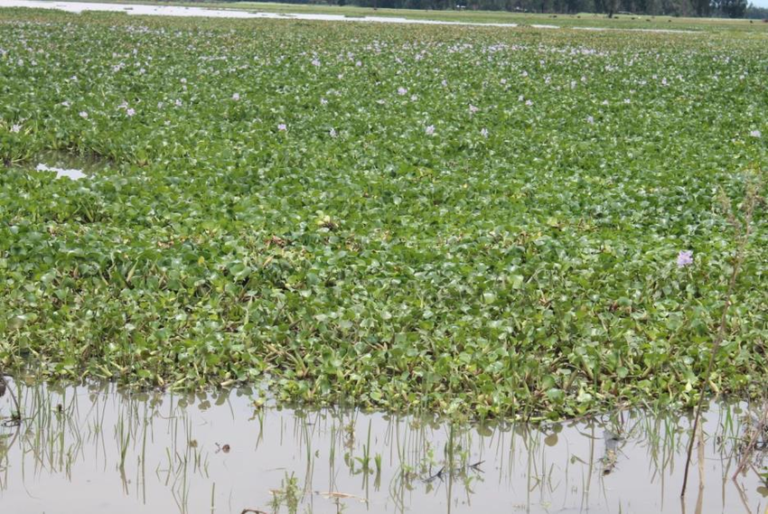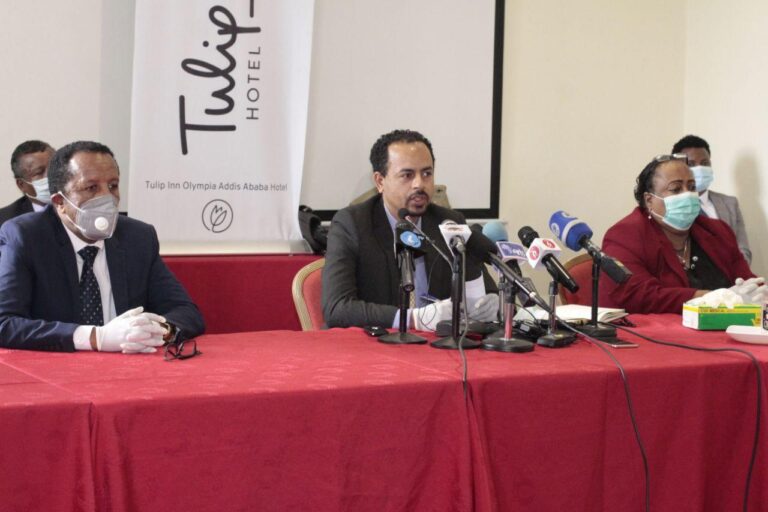Tour operators, one of the most vulnerable sectors after the coronavirus pandemic, get a green light to rent their vehicles to any businesses that were imported duty free, Capital learned.
Since the outbreak was reported globally even before it was reported in Ethiopia the tourism and related sectors have been highly affected by the pandemic.
The tour operators are also directly related with the tourism business claimed their challenge via their association and individually for the government, who come up with several incentives including providing soft loan and tax amnesty.
Tour companies have also asked the government to allow them to use their duty free vehicles for rental service to survive the situation.
Mengistu Gebremedhine, Business and Policy Advisor at Green Land Plc said that the request was targeted to keep the life of the sector and employees and operate until the tourism sector comes back to normal.
Tour companies have a privilege to import limited high powered 4×4 vehicles for their operation in the tourism business, while they are strictly not allowed to use it for other purpose.
However due to the current situation, to mitigate the problem the government allowed companies to rent their vehicles for those like aid organization and others.
According to the information Capital obtained, the Ministry of Culture and Tourism has accepted their request and send the issue for Ministry of Finance (MoF) that also approved the case and send it to Ministry of Revenue (MoR), who is responsible to manage the implementation process.
According to sources, meanwhile the issue has get acceptance by relevant government bodies the implementation is at MoR.
The advisor at Green Land Plc, which is one of the pioneers in the industry, said that his company needs the decision badly since it is a right time to manage its operation and save employees.
“We have been informed that MoF approved the claim and sent it for implementation at MoR but could not understand why it is still there,” Mengistu claimed.
According to experts, the decision may allow tour operators to provide their vehicles to those who are working on emergency control, security and aid organization that play their role to fight the pandemic.
“It is a time to provide cars for aid organizations until the pandemic ends,” one of the tour operators, who demand anonymity said.
He said that the government passed marvelous decisions, which is highly appreciated by all sector actors, to support the sector and mitigate the problem that is faced because of COVID19, “the new decision will also help companies to continue their business to some extent on better condition until the problem is fully solved.”
“But we don’t have any clue where it is now,” he added.
Mengistu told Capital that besides the issue mentioned above his company has also filed its claim for the Prime Minister and Deputy Prime Minister that the tax annulled by the government few weeks back has some gaps.
Few weeks ago the government has given a tax amnesty under Directive 64/2020, which is for the budget years until 2014/15, for those who have been in dispute with the tax authority.
“Pervasive effects of the tax were not included on the amnesty, which created confusion for those that are trying to precede the government decision,” Mengistu says, “we have filed the case to the Office of the Prime Minister.”
“In our understanding tax arrears are fully annulled, meanwhile the case is not clear,” he says, adding “for instance the tax authority has fully annulled the tax claim for 2014 but it is now asking for the administrative penalty payment for the stated year but calculated for 2017 or 2018, which are the years that are not included on the amnesty period.”
He explained that they have been requested to settle the administration penalty calculated for two budget years (for 2015/16 and 2016/17) for the tax dispute of 2012/13 budget year, which is canceled under the directive, by the tax authority.
Tour operators get a sweet deal from gov’t
Enterprises to distributed cement exclusively
The Ministry of Trade and Industry has authorized only governmental development enterprises to directly distribute cement from factories to the open market.
“The high price of cement on the open market has stressed the construction sector despite the Ministry’s effort to control the price and protect the construction sector,” said Eshete Asfaw, Sate Minister of Trade and Industry.
Eshete added that the enterprises will purchase cement from the local cement manufactures and distribute it with a fair price to smaller retailers.
The illegal increasing price of cement in the open market has rise challenges on the construction industry.
To solve the problem on May 29, 2020 the Ministry held talks with different stakeholders.
According to the Ministry most of the stakeholders raise the inefficient control of the government on the market as the main problem to the price hike.
According to Eshete the decision will continue until situations get to the point as they were before the pandemic.
Cement known as the back bone of the construction world typically a heavy-consuming cement market, Ethiopian cement production had proven insufficient to meet demand.
Back in the past years through the development of the construction industry massive public investment and infrastructure projects increase the demand and consumption of cement.
According to the Ministry because of the current situation cement factories are working by their 50 percent capacity, although to benefit from the market some traders are increasing the price of cement as there is shortage of production.
As one of the mandates of the enterprises are to ensure supply of industrial inputs whenever necessary for trade and industry, the profit rate of the enterprise is much lower than the retail market. “The lower rate of the profit will solve the challenges facing the construction sector” said Eshete.
Cement producers are tackling a long list of challenges, unfavorable supply-demand balance, higher cement prices, escalating production costs, low utilization rates, social unrest, and a lack of foreign currency.
The ministry has been making manufactures set constant prices and pursue their distributers.
According to the Ministry, in the retail market cement is sold around 350 birr per quintal but currently it reaches up to 600 birr.
Currently the country has a capacity to produce 17.1 million quintals of cement per annum.
Ethiopia’s cement capacity grew at an annual average rate of 6.8 percent between 2013 and 2018, according to data from Cement World Group.
COVID-19 makes it almost impossible to fight weed on Lake Tana
The COVID-19 pandemic has worsened the infestation of Water Hyacinth or commonly known as ‘Emboch’ on Lake Tana, the largest lake in the country and source of the Blue Nile River.
Starting from 2011 the lake has been affected by the infestation which is the most dangerous weed affecting lakes around the world. At the time of the infestation the weed has been covering around 20,000 hectares of the lake shores, though the government and the society were doing different things to control the spread of the weed to no avail.
On September 2019 the government has formed an agency for protection and development of water resources to control the spread of the weed.
Ayalew Wonde, head of the agency told Capital that there are three methods being used to control the spread of the weed.
“The first is using chemicals which is not advisable because the lake is home to different habitants and most of the surrounding community use it as a drinking water, the second one is biological which can also affect the habitants of Lake Tana that holds 50 percent of Ethiopia’s fresh water. It also shelters around 28 species of fish, of which 21 are endemic, and the last choice is removing it physically by using both machines and human resource. The previous year’s efforts so far were using human resource and the community managed to dispose 50 percent of the weed from the lake.”
“We have been planning to minimize the coverage until the end of June before the rainy season and replace it by local plants using the human resource however because of the pandemic we were not able to do so,” Ayalew told Capital.
Despite these efforts, the infestation persisted and even got worse. In the current Ethiopian year, the infestation expanded to the water part of the lake, covering 1,000 hectares of it.
“My fear is that the rainy season is convenient for the spread of the weed besides we are not able to do anything because of the pandemic,” said Ayalew adding that, the infestation still poses a serious threat to the lake, the surrounding community, and the Nile basin. The matter also touches, among other things, the Grand Ethiopian Renaissance Dam (GERD).
Ayalew said it is possible that it might reach the GERD. Thus, as much attention and urgency must be attached to controlling the infestation as is being attached to the GERD.
One of the problems in previous activities is that there is no consistent effort made by the government or by other stake holders.
Tana which is 60 percent of source of the Blue Nile is approximately 84 kilometers long and 66 kilometers wide.
Enboch directly threatens both the lake and its inhabitants. It deprives aquatic plants and animals of sunlight and oxygen. It also restricts water flow and is an obstacle to all kinds of economic activities including fishing, navigation, power generation and irrigation.
Hotels failing to abide rules and regulations on employees: Association
Ethiopian Hotel Professionals Associations asked the government to control over the implementation of directives and regulations imposed on employment, layoff and termination.
As stated by the board members of the association on May 29, 2020, there are hotels which are laying off employees, cutting off their salary and not protecting their employees from getting affected by the virus.
“We have heard 14 hotels with different cases related with employment lay off and salary cut, we are trying to solve them,” Leulseged Mesele president of the association said.
According to the association there is a huge mess on implementing the national directives and lacks follow up from the government side.
We have been calling the hotels to come and talk on the issue, but we don’t get any response. Also we are communicating with the Culture and Tourism Ministry, Ministry of Labor and Social Affairs there is no solution.
As the spread of the virus continue the government prohibits companies from laying off workers and terminating employments in a measure introduced as part to protect citizens from economic crises.
And to mitigate the damages of the pandemic and alleviate economic crisis on industries that have fallen such as tourism, hospitality and the horticulture the government has been aggressively implementing different measurements including financial injection.
According to the government, these sectors can borrow from commercial banks with low interest rates mainly to pay their employees salary and survive the crises together.
Banks are rescheduling, annulling or reducing interest rate and reschedule loan for sectors like hospitality, tourism and horticulture for three months and above to mitigate the effect on their clients mainly for those who are highly affected.
According to the board members of the association even if such kind of efforts has been made by the government to support the sector and protect employees, there are hotels who are not abiding by the rules.
According to Leulseged, most of the hotels took the loan from banks but still there are problems on the implementation.
“Most of the employees are low paid workers, we do not have to expect them to pay back the loan rather we need to stand together and pass this time,” said Sendu Getachew Vice President of the association.
Beside the state of emergency, recently the country has launched work place respond protocol agreement between the government, employers and employees, of work force protocol to encompasses measures taken to fight against the pandemic virus Covid 19.
Guideline for response to crisis management which was signed between three parties’ Ministry of Labor and Social Affairs, the Confederation of Labor and Confederation of Trade Unions, urge basic workplace protection strategies to be implemented by employers, employees and safety committee that includes precautions to be taken.
Following the spread of COVID -19 and the subsequent travel restrictions impacting the international travel-tour industry, hotels are partially or fully closed due to low occupancy rate. Currently 98 percent of the market in the industry is dead and the rest two percent is on hotels used as quarantine according to the association.
Following this most of the hotels are about to change their faces to serve as quarantine centers.






